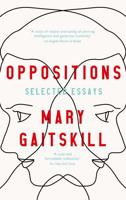Publisher's Synopsis
Excerpt from The World's Greatest Books, Vol. 20: Miscellaneous Literature, Index
Recall the time when it was founded. It was in the days of. Queen Anne, the Augustan age of the essay. There were no newspapers then, no magazines or re views, no Parliamentary reports, nothing corresponding to the so-called light literature of later days. The only centres of society that existed were the court, with the aristocracy that revolved about it, and the clubs and coffee-houses, in which the commercial and professional classes met to discuss matters of general interest, to crack their jokes, and to exchange small talk about this, that and the other person, man or woman, who might happen to figure, publicly or privately, at the time. The Spectator was one of the first organs to give form and consistency to the opinion, the humour and the gossip en gendered by this social contact.
One of the first, but not quite the first' for the less famous, though still remembered, Tatler preceded it. 'and these two, The Tatler and The Spectator, have an intimate connection from the circumstance that Rich ard Steele, who started The Tatler in April, 1709, got Addison to write for it, and then joined with Addison in The Spectator when his own paper stopped in Janu ary, 1711. Addison and Steele had been friends since boyhood. They were contemporaries at the Charter house, and Steele Often spent his holidays in the parson age Oi Addison's father.
About the Publisher
Forgotten Books publishes hundreds of thousands of rare and classic books. Find more at www.forgottenbooks.com
This book is a reproduction of an important historical work. Forgotten Books uses state-of-the-art technology to digitally reconstruct the work, preserving the original format whilst repairing imperfections present in the aged copy. In rare cases, an imperfection in the original, such as a blemish or missing page, may be replicated in our edition. We do, however, repair the vast majority of imperfections successfully; any imperfections that remain are intentionally left to preserve the state of such historical works.









